La musica dei Modular Project compie 10 anni. Per l’occasione abbiamo avuto il piacere di intervistare Alberto e Alessandro al Robot Studio, presso gli Alari Park di Milano.
Legati da una visione e uno stile musicale comune dal 2014, nel 2017 i Modular Project fondano la loro etichetta Nothing is Real. Ricercano il loro sound tra la nightlife milanese, la scena underground di Berlino e non solo. Un’evoluzione musicale scritta dal suono dei sintetizzatori e delle drum machines analogiche, che 10 anni dopo mantiene la sua identità senza scendere a compromessi con una scena sempre più mainstream e omogenea.
Una chiacchierata sul loro incontro, sulla produzione analogica, sulla nightlife di Milano e Berlino e sullo stato attuale delle loro scene, per ripercorrere insieme un viaggio musicale lungo 10 anni.
In attesa di “It’s Time”, il nuovo EP dei Modular Project in uscita su Exploited il 19 aprile, ci hanno raccontato la genesi delle 3 tracce che è possibile ascoltare in anteprima al termine dell’intervista su youtube.
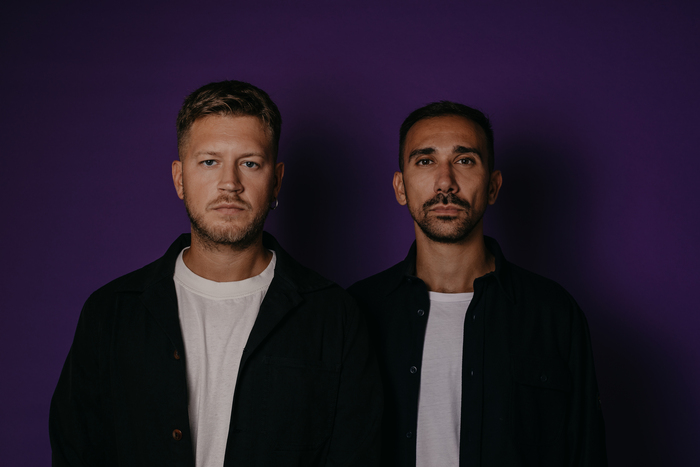
Ciao Alberto, ciao Alessandro. È un piacere portare Parkett al Robot Studio negli studios di Alari Park. Quest’anno la musica dei Modular Project compie 10 anni. Come vi siete conosciuti? Quali sono i pro e quali i contro di lavorare ad un progetto musicale di coppia?
[Alberto] Modular Project nasce nel 2014 ad un evento che organizzavamo insieme ad altri dj e promoter fuori Milano, Vision. Dopo tempo trascorso a lavorare insieme a questo progetto facendo lo stesso sound, producendo la stessa musica e suonando a volte anche gli stessi dischi abbiamo detto “senti, forse è il momento di fare qualcosa insieme, un duo insieme”. Modular Project nasce principalmente dalla produzione e il primo studio si trovata nella taverna di Alex, sotto casa dei suoi genitori. 10 anni sono volati e non ce ne siamo neanche accorti.
Riguardo ai pro e i contro: il duo è una forza perché riesci a dividere i vari compiti e, come dire, due teste sicuramente sono più forti di una. Poi non è detto, ma abbiamo notato che insieme riusciamo ad arrivare a cose che magari da soli non riusciremmo a fare o raggiungere. Riusciamo a tirare fuori più idee e spunti su cui lavorare. Andiamo abbastanza d’accordo. Un contro potrebbe essere scontrarsi quando si hanno troppe idee, ma non è mai successo di arrivare al punto di non incontrarsi, anzi, cerchiamo sempre di raggiungere lo stesso obiettivo.
Come nasce Robot Studio e come siete arrivati a produrre qui agli studi di Alari Park a Milano?
[Alessandro] Lo studio iniziale dei Modular Project era sotto casa dei miei genitori, in Brianza. Durante il periodo Covid non c’erano molti lavori da DJ dato che non si poteva suonare; quindi, abbiamo cominciato a fare qualche lavoretto in studio per altri artisti, quindi mixing, mastering e produzioni musicali. Avevamo bisogno di uno spazio più professionale e ci siamo spostati a Monza in una mansarda adibita a studio. Siamo stati lì per due anni e poi abbiamo avuto la possibilità di arrivare qui a Milano al Robot Studio ad Alari Park dove tutt’ora lavoriamo ogni giorno.
Quando avete iniziato a produrre, da quali artisti avete tratto maggior ispirazione? Ad oggi, chi vi ispira maggiormente?
[Alberto] Sono un sacco! Kasper Bjørke è stato sicuramente un artista e un amico che ci ha influenzato molto ed è stato il primo ad aver creduto in noi insieme alle etichette delle nostre prime release: Off Recordings e Rebirth Records, label di Brescia con cui abbiamo avuto la possibilità di remixare un brano molto famoso dei Reblond:ish, il che ci ha dato visibilità a livello internazionale. Dopodiché, sempre su Rebirth, abbiamo ricevuto un remix da Kasper Bjørke e da lì è nata questa amicizia\ collaborazione. Bjørke era uno dei nostri artisti preferiti. Essere remixati da lui e poter collaborare con lui è stato un sogno diventato realtà. È nata una grande amicizia con Kasper. È una persona a cui dobbiamo tanto della nostra carriera musicale quindi ci tenevamo a menzionarlo.
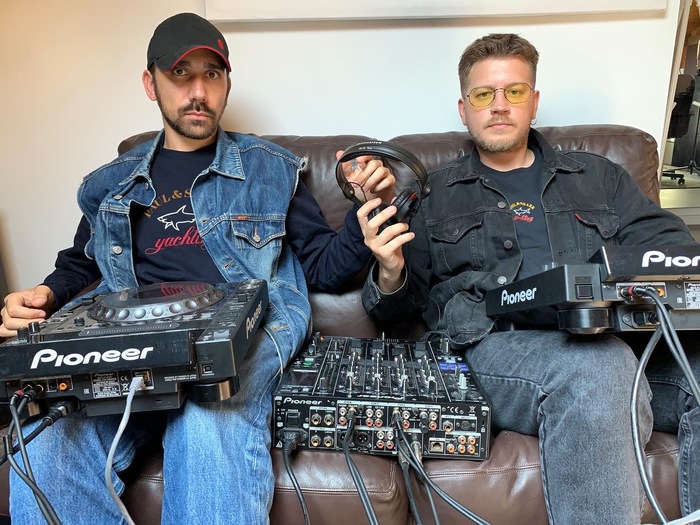
Fate parte di quella generazione di producer che tutela la musica elettronica analogica. Perché questa scelta? Quali sono le tecniche di produzione che utilizzate maggiormente?
[Alessandro] Non ci sono tecniche che utilizziamo maggiormente, dipende dal feeling del momento e dall’ispirazione del giorno. A volte partiamo dalla voce, dalla batteria elettronica, da un sequencer, da una melodia fatta alla tastiera, non c’è uno schema. [Alberto] L’analogico è proprio il feeling che hai con la macchina e i vari synth, la sensazione e il suono che ne esce fuori che è imbattibile rispetto al digitale. Per carità, ormai ci sono plug-in che emulano synth perfettamente però non è la stessa cosa, almeno per noi. Siamo legati all’analogico ma ovviamente siamo nel 2024 e il digitale fa parte della produzione, quindi ormai ne usufruiamo anche noi.
Siete particolarmente attivi a Milano e Berlino. In che modo queste due città hanno influenzato la vostra vita e la vostra musica?
[Alessandro] Milano è sicuramente stata la partenza. Dalla Brianza ci siamo spostati a Milano, siamo stati resident al Divina, che oggi è il Volt Club. Siamo stati lì un anno, poi tre stagioni come resident al Volt. Dopodiché abbiamo cominciato a fare le nostre serate con la nostra etichetta e showcases in altri locali di Milano.
[Alberto] Berlino è una città dove andiamo spesso, dove sicuramente la scena è totalmente diversa. Berlino ti accoglie sin da subito a braccia aperte se sei un DJ. Forse è il posto più bello dove suonare perché sei libero di esprimerti come ti pare rispetto magari a Milano, che a volte dipende dal pubblico che hai davanti. È anche una questione di tempo perché hai molte più ore per esprimerti. A Berlino nei club non sbagli quasi mai, invece a Milano, a volte, dipende dalla serata o dalla situazione che c’è. Milano è stata sicuramente la nostra gavetta e tutt’ora è la nostra città e ci divertiamo un sacco a suonare. Suonare meno è molto meglio a Milano, abbiamo modo di essere più esclusivi rispetto a quando suonavamo più spesso. Milano la teniamo buona per le serate giuste.
Di recente la Techno di Berlino è stata inserita nella lista dei beni culturali immateriali tutelati dall’UNESCO in Germania. Secondo voi, negli ultimi 10 anni la scena di Berlino è cambiata? Che percezione avete della scena attuale?
[Alessandro] La scena di Berlino rimane sicuramente la più bella ancora oggi. Nonostante la techno sia mainstream riescono comunque a mantenere sempre il panorama underground dividendo le due cose, anche grazie al divieto di fare foto e video nei club, tenendo tutto nascosto. [Alberto] Il clubbing è un’esperienza più che una serata di per sé; quindi, la scena di Berlino forse è rispettata anche per questo.
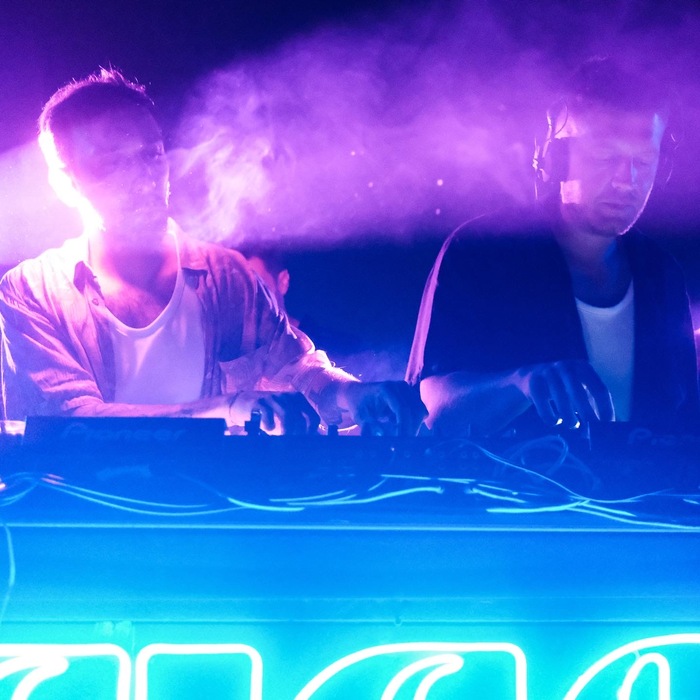
Nel 2017 avete fondato la vostra etichetta “Nothing is Real”. In un’intervista rilasciata a Parkett nel 2018 avete definito l’impronta musicale dell’etichetta “dark ma con un’impronta disco”. Sono caratteristiche che ancora oggi ne rispecchiano l’identità o in questi 6 anni qualcosa è cambiato?
[Alberto] Si, rispecchiano ancora l’etichetta, magari non a pieno. C’è sempre l’influenza di quel suono. L’impronta dark disco c’è ma con delle influenze nuove, nuove sonorità sempre retrò che strizzano l’occhio agli anni ’90. L’identità dell’etichetta è sempre quella.
Abbiamo ascoltato in anteprima il vostro nuovo EP “It’s Time” in uscita su Exploited il 19 aprile. Un EP coinvolgente in grado di comunicare e suscitare molte emozioni. In genere, questo accade quando c’è una storia dietro la produzione delle tracce. Qual è questa storia nel caso del vostro ultimo EP?
[Alberto] Sicuramente il titolo “It’s Time” dice già qualcosa. È un EP che abbiamo fatto circa un anno e mezzo fa, nel momento in cui abbiamo prodotto queste tracce c’era voglia di cambiamento: it’s time: era il momento di farlo. Come si può sentire dalle tracce, c’è un sound diverso rispetto a ciò che facevamo prima, sempre con le nostre sonorità un po’ 80, synth pop, dark, disco e dark wave ma con un’impronta un po’ più house e club. “It’s Time” e “Sex!” sono tracce dall’impronta più dancefloor rispetto a “Echosphere”, che è più un viaggio introspettivo. L’EP rispecchia il nostro cambiamento degli ultimi due anni e la nostra voglia di evolverci a livello musicale.
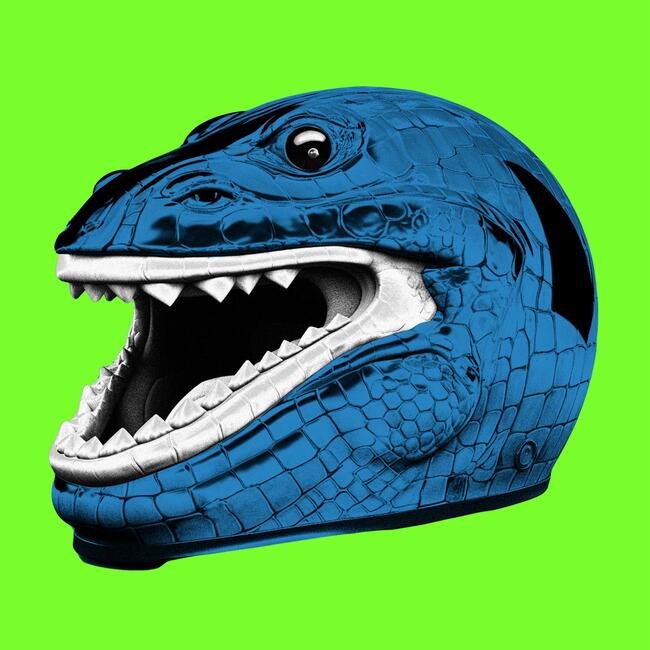
Concludo ringraziandovi a nome di Parkett e, prima di dedicarci all’ascolto di “It’s Time” EP, di cui è disponibile un’anteprima al termine dell’intervista su YouTube , vi chiedo di consigliare 4 tracce ai nostri lettori e ascoltatori.
“Energy Flash” – Joey Beltram
“I Wanna Be Your Lover” – La Bionda
“More and More” – Captain Hollywood Project
“Modular Project” – Past Present Future
Grazie a voi!
ENGLISH VERSION
Hi Alberto, hi Alessandro. It’s a pleasure to bring Parkett to Robot Studio at Alari Park studios. This year Modular Project’s music turns 10. How did you meet? What are the pros and cons of working on a musical project as a couple?
[Alberto] Modular Project was born in 2014 during an event we organized together with other DJs and promoters outside Milan, Vision. After time spent working together on this project making the same sound, producing the same music and sometimes even playing the same records we said “maybe it’s time to do something together, a duo together”. Modular Project was born mainly from production and the first studio was located in Alex’s tavern, under his parents’ house. 10 years have flown by and we haven’t even noticed.
Regarding the pros and cons: the duo is a force because you can divide the various tasks and, I mean, two heads are certainly stronger than one. Then it is not certain, but we have noticed that together we manage to achieve things that perhaps we would not be able to do or achieve alone. We are able to come up with more ideas and ideas to work on. We get along quite well. A con could be clashing when you have too many ideas, but it has never happened to get to the point of not meeting, on the contrary, we always try to reach the same goal.
How was Robot Studio born and how did you come to produce here at the Alari Park studios in Milan?
[Alessandro] Modular Project’s first studio was under my parents’ house, in Brianza. During the Covid period there weren’t many DJ jobs since you couldn’t play; therefore, we started doing some studio work for other artists, therefore mixing, mastering and musical productions. We needed a more professional space, so we moved to Monza in an attic used as a studio. We were there for two years and then we had the chance to arrive here in Milan at the Robot Studio in Alari Park where we still work every day.
When you started producing, which artists did you draw the most inspiration from? Today, who inspires you most?
[Alberto] Are so many! Kasper Bjørke was certainly an artist and a friend who influenced us a lot and was the first to believe in us together with the labels of our first releases: Off Recordings and Rebirth Records, a label from Brescia with which we had the opportunity to remix a very famous song by Reblond:ish, which gave us international visibility. After that, again on Rebirth, we received a remix from Kasper Bjørke and from there this friendship\collaboration was born. Bjørke was one of our favorite artists. Being remixed by him and being able to collaborate with him was a dream come true. A great friendship was born with Kasper. He is someone to whom we owe a lot of our musical career so we wanted to mention him.
You are part of that generation of producers who protect analog electronic music. Why this choice? What production techniques do you use most?
[Alessandro] There are no techniques that we use more, it depends on the feeling of the moment and the inspiration of the day. Sometimes we start from the voice, from the electronic drums, from a sequencer, from a melody made on the keyboard, there is no pattern. [Alberto] Analogue is precisely the feeling you have with the machine and the various synths, the sensation and the sound that comes out of it which is unbeatable compared to digital. For goodness sake, there are now plug-ins that emulate synths perfectly but it’s not the same thing, at least for us. We are tied to analogue but obviously we are in 2024 and digital is part of production, so we now benefit from it too.
You are particularly active in Milan and Berlin. How have these two cities influenced your life and music?
[Alessandro] Milan was definitely the beginning. From Brianza we moved to Milan, we were residents at the Divina, which is now the Volt Club. We were there for a year, then three seasons as a resident at the Volt. After that we started doing our own parties with our label and showcases in other clubs in Milan.
[Alberto] Berlin is a city where we often go, where the scene is certainly totally different. Berlin immediately welcomes you with open arms if you are a DJ. Perhaps it is the most beautiful place to play because you are free to express yourself as you like compared perhaps to Milan, which sometimes depends on the audience in front of you. It’s also a question of time because you have many more hours to express yourself. In Berlin you almost never make mistakes in the clubs, whereas in Milan, sometimes, it depends on the evening or the situation. Milan was certainly our apprenticeship and is still our city and we have a lot of fun playing. Playing less is much better in Milan, we have the opportunity to be more exclusive than when we played more often. We keep Milan good for the right evenings.
Berlin Techno was recently included in the list of intangible cultural heritage protected by UNESCO in Germany. In your opinion, has the Berlin scene changed in the last 10 years? What is your perception of the current scene?
[Alessandro] The Berlin scene certainly remains the most beautiful even today. Even though techno is mainstream, they still manage to always maintain the underground scene by dividing the two things, also thanks to the ban on taking photos and videos in clubs, keeping everything hidden. [Alberto] Clubbing is an experience more than a party in itself; therefore, the Berlin scene is perhaps respected for this too.
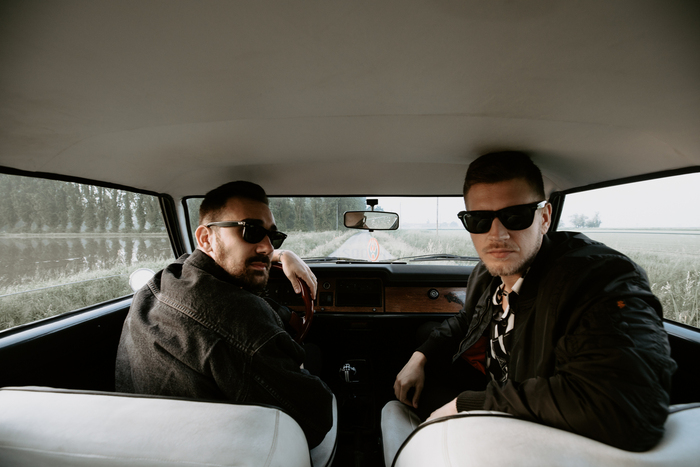
In 2017 you founded your label “Nothing is Real”. In an interview with Parkett in 2018 you defined the label’s musical imprint as “dark but with a disco imprint”. Are these qualities that still reflect its identity today or has something changed in these 6 years?
[Alberto] Yes, they still reflect the label, perhaps not fully. There is always the influence of that sound. The dark disco imprint is there but with new influences, new retro sounds that wink at the 90s. The identity of the label is always the same.
We heard a preview of your new EP “It’s Time” out on Exploited on April 19th. An engaging EP capable of communicating and evoking many emotions. Typically, this happens when there is a story behind the production of the tracks. What is this story in the case of your latest EP?
[Alberto] Surely the title “It’s Time” already says something. It’s an EP that we made about a year and a half ago, when we produced these tracks there was a desire for change: it’s time: it was the time to do it. As you can hear from the tracks, there is a different sound compared to what we did before, always with our slightly 80’s sounds, synth pop, dark, disco and dark wave but with a slightly more house and club. “It’s Time” and “Sex!” are tracks with a more dancefloor feel than “Echosphere”, which is more of an introspective journey. The EP reflects our change in the last two years and our desire to evolve on a musical level.

I conclude by thanking you on behalf of Parkett and, before dedicating ourselves to listening to “It’s Time” EP, a preview of which is available at the end of the interview on YouTube, I ask you to recommend 4 tracks to our readers and listeners.
“I Wanna Be Your Lover” – La Bionda
“More and More” – Captain Hollywood Project
“Modular Project” – Past Present Future
Thank you!
